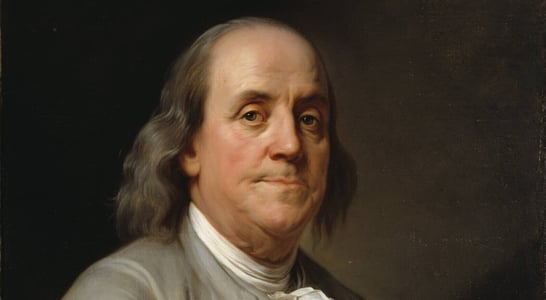
Muhammad Ali's birthday
Born on January 17, 1942, Muhammad Ali was a remarkable figure in sports history. Known for his extraordinary boxing skills, he became a world champion and earned great respect worldwide. Ali’s life was not just about boxing; he was also known for his strong principles and activism. His journey, filled with both challenges and triumphs, made him an inspiration to many. Ali left a lasting impact on the world through his actions inside and outside the ring.
Early Life
Muhammad Ali, born Cassius Marcellus Clay Jr. in Louisville, Kentucky, grew up in a time of racial segregation. He discovered boxing at a young age, thanks to a local police officer. This officer, Joe Martin, introduced him to the sport after Ali’s bike got stolen. Ali quickly showed a natural talent for boxing, dedicating himself to training hard.
His education took place in Louisville’s public school system. However, Ali faced challenges in school due to his dyslexia, making reading and writing difficult for him. Despite these obstacles, he remained focused on boxing, where he found his true passion and purpose. Ali’s determination in the ring was clear from the start. By the age of 18, he had already made a name for himself, winning the light heavyweight gold medal in the 1960 Rome Olympics.
This early success marked the beginning of Ali’s remarkable journey in boxing. His childhood experiences shaped not only his athletic career but also his character. Ali’s resilience in the face of adversity and his commitment to his sport became the foundation of his legendary status.
Triumphs and Legacy of Muhammad Ali
Ali’s journey to success began with his Olympic gold medal in 1960. This victory was just the start of a spectacular career. In 1964, he became the world heavyweight champion after defeating Sonny Liston, a feat that shocked many. Ali’s boxing style was unique, marked by speed, agility, and a charismatic flair.
Beyond the ring, Ali’s convictions were as strong as his punches. He famously refused military service during the Vietnam War, standing up for his beliefs. This decision cost him titles and a temporary ban from boxing, but it also showed his unwavering principles. Ali’s stance made him a symbol of resistance and courage.
Ali’s comeback to boxing was triumphant. He reclaimed the heavyweight title in 1974, defeating George Foreman in the legendary “Rumble in the Jungle” fight. In 1975, he won the “Thrilla in Manila” against Joe Frazier, another iconic battle. These victories solidified his reputation as “The Greatest” boxer of all time.
His achievements extended beyond sports. Ali became an influential figure in the civil rights movement. His advocacy for racial equality and religious freedom gained worldwide attention. Ali’s charisma also made him a beloved public figure, known for his witty quotes and charismatic personality.
Despite battling Parkinson’s disease later in life, Ali continued to inspire. His humanitarian work and advocacy for peace and social justice added depth to his legacy. Muhammad Ali left an indelible mark not only in sports but also in people’s hearts worldwide. His life story remains a powerful testament to resilience, bravery, and the relentless pursuit of greatness.
Interesting Facts About Muhammad Ali
-
Olympic Gold to a River
After winning Olympic gold in 1960, Ali threw his medal into the Ohio River. He did this in frustration after being refused service at a “whites-only” restaurant, highlighting the racial tensions of the time.
-
A Poetic Boxer
Known for his rhyming prowess, Ali often predicted the rounds in which he would defeat his opponents, earning him the nickname “The Louisville Lip.”
-
Star on the Walk of Fame
Unlike other stars on the Hollywood Walk of Fame, Ali’s star is mounted on a wall, not the ground. He requested this to avoid the disrespect of his name being walked upon in honor of the Islamic prophet Muhammad.
-
Conversion to Islam
He was originally named Cassius Marcellus Clay Jr., but he changed his name to Muhammad Ali after converting to Islam in 1964.
-
Refusal to Join the Army
In 1967, Ali was stripped of his heavyweight title and banned from boxing for three years after refusing induction into the U.S. Army, citing religious reasons and opposition to the Vietnam War.
-
Acting and Music
Ali dabbled in acting, appearing in a Broadway musical called “Buck White” in 1969. He also released an album of spoken word and music titled “I Am the Greatest.”
-
Humanitarian Efforts
Ali was involved in numerous humanitarian causes, including serving as a United Nations Messenger of Peace and helping secure the release of American hostages in Iraq in 1990.
-
Olympic Torch Bearer
In a memorable moment, Ali, visibly shaking from Parkinson’s disease, lit the Olympic cauldron at the 1996 Atlanta Summer Olympics.
Also on this date...
National Kid Inventors’ Day
These young minds are like mini scientists, creating ingenious solutions to everyday problems with their boundless curiosity and creativity.
National Bootlegger’s Day
The delicious art of making and selling illegal liquor during Prohibition — a story of speakeasies, gangsters, and daring drinkers.
Benjamin Franklin Day
A polymath with many talents, from inventing to writing, Franklin's contribution to American history will never be forgotten.




